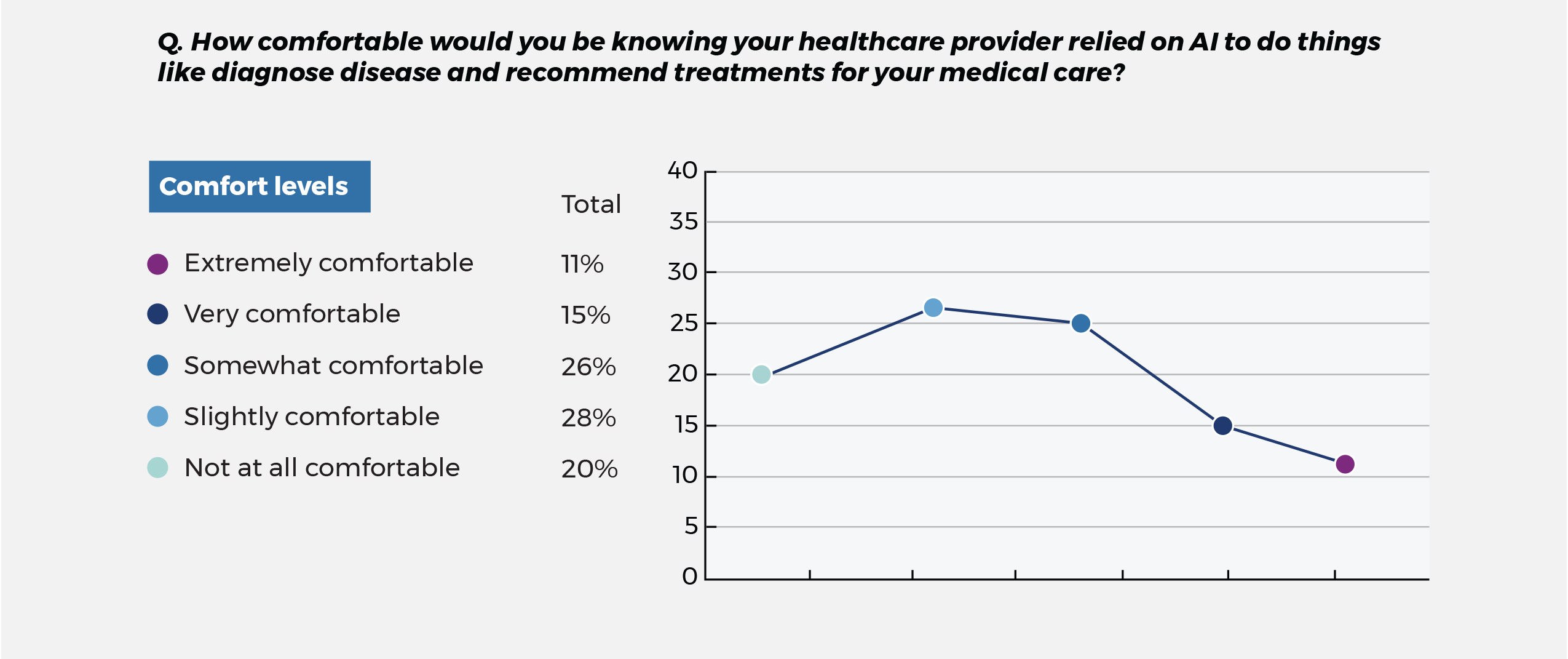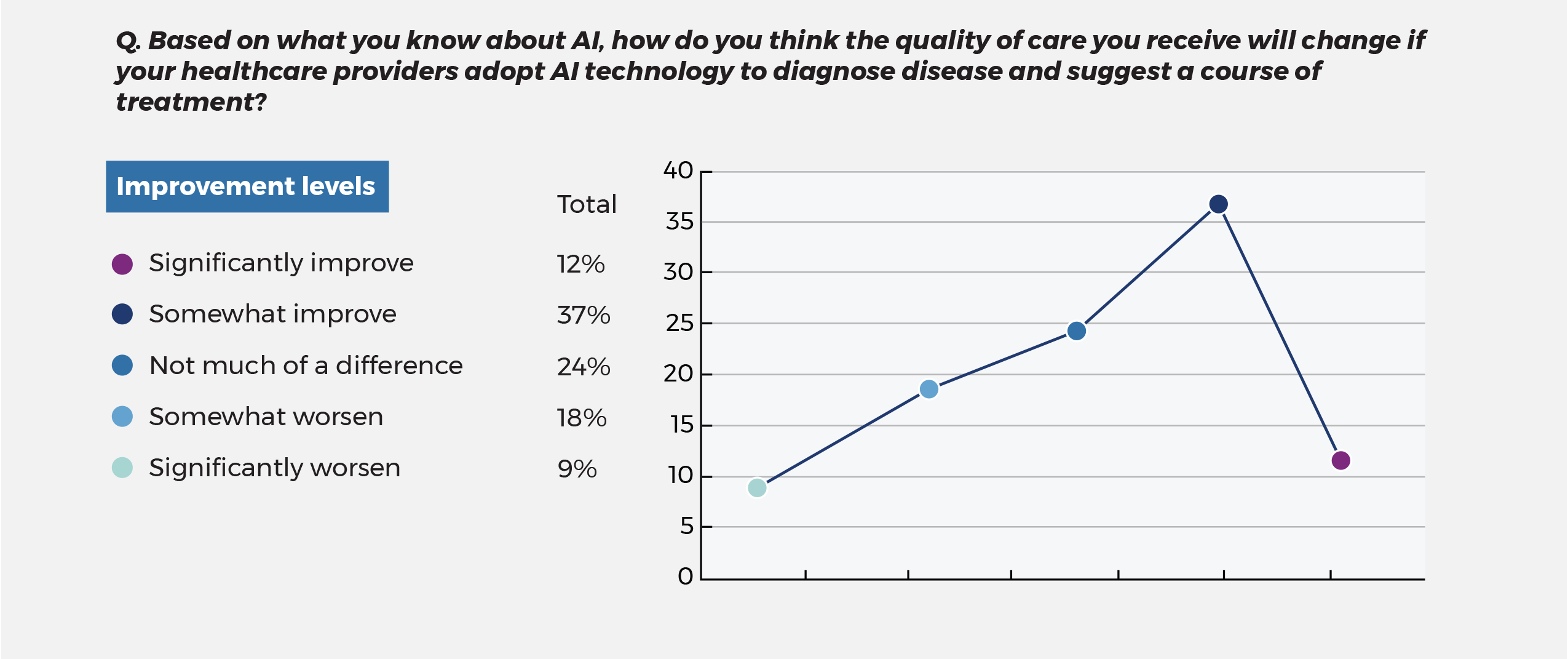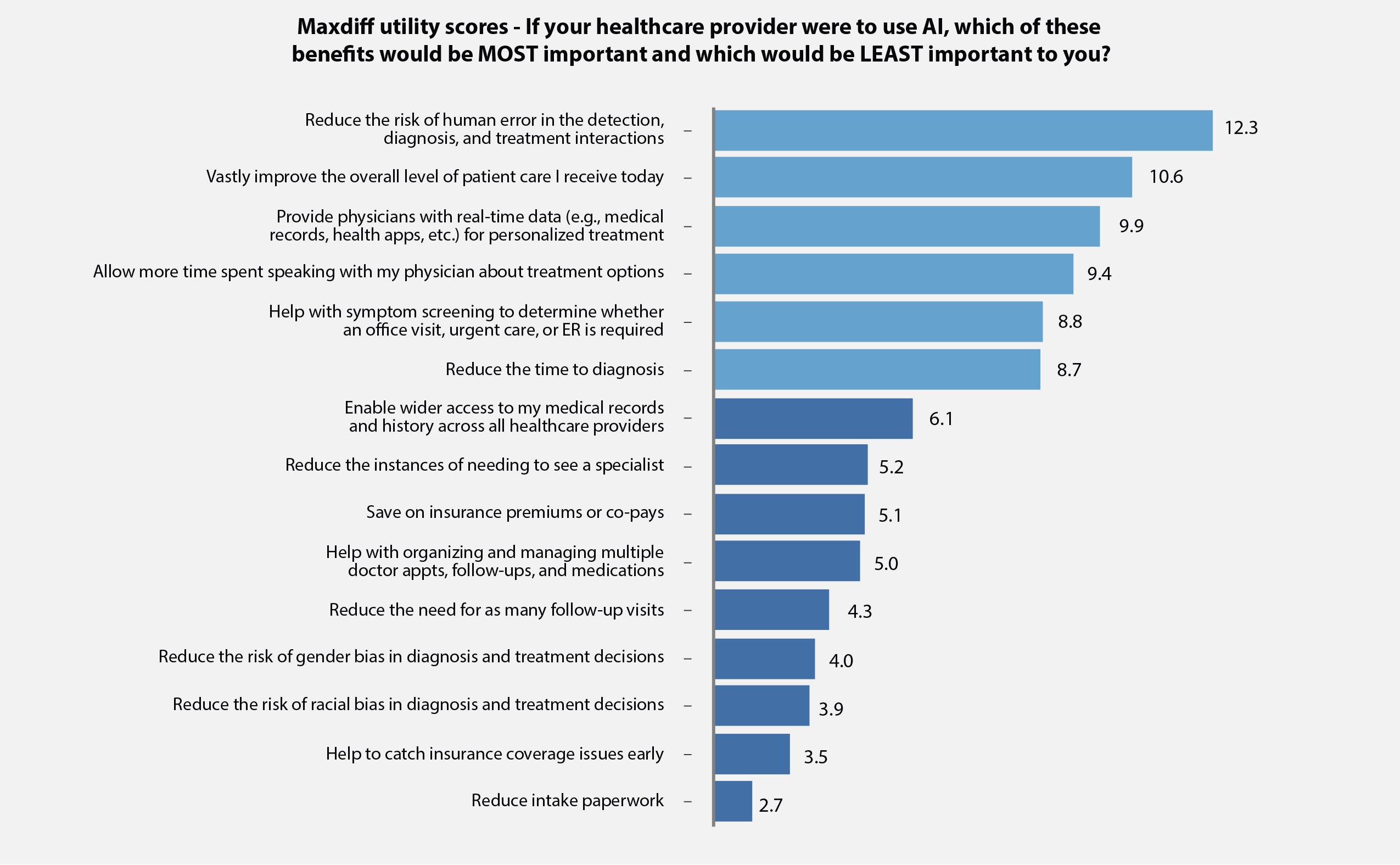Launching a survey is like planning a dinner party. A lot of work goes into it - preparing a menu,...
AI in Healthcare: 4 Takeaways from Recent Consumer Research
Artificial intelligence (AI) is on the rise across various industries, and the healthcare sector is no exception. From machine learning for disease diagnosis to apps that monitor health status in real-time, AI has the potential to improve medical outcomes and experiences across the board.
But how do patients feel about it? Our comprehensive report, "AI in Healthcare Gives Americans Pause," digs deep into the data that drives public opinion. In this post, we present four key takeaways from the research.
AI in Healthcare Study
IntelliSurvey recently conducted a study to gauge consumer attitudes and behaviors toward healthcare and technology. Using IS Pro, our collaborative survey platform, we interviewed 1,000 Americans via a 12-minute online survey. The panel sample was click-balanced to census targets on gender, age, income, race/ethnicity, and region.
4 Key Takeaways
Public Hesitation for AI
When it comes to healthcare providers using artificial intelligence for diagnosis and treatment recommendations, only a slight majority (52%) of respondents expressed comfort. As with any emerging technology, it is not surprising to see a split between early adopters and those that will eventually fall into the “late majority” stage of the technology adoption curve. This hesitancy might stem from concerns over accuracy, privacy issues, or a general mistrust of AI making critical health decisions.

AI is Embraced by Many, Overlooked by Some
While those who believe AI will improve the quality of care outnumber those who are less enthusiastic by 22 points, a large number of the population is ambivalent, with 24% believing AI will not make much of a difference either way.

A lack of knowledge regarding artificial intelligence applications may explain this seeming indifference. When asked, only 21% of the population self-identified as extremely or very familiar with AI in general. The majority of Americans may not understand how artificial intelligence can improve patient outcomes or operating efficiency, so it's understandable that they have no strong opinions about it.
AI’s Transformative Impact on Healthcare
Our study led respondents through a MaxDiff exercise to quantify patient perceptions of the benefits of AI technologies. From this, we learned that the most significant impacts are:
- Reduction of human error: AI’s precision and consistency can transform the way healthcare operates. By eliminating or minimizing human errors, the use of AI can result in more reliable patient diagnostics and treatments.
- Overall improvement in patient care: Artificial intelligence not only enhances diagnostics and treatments but can also improve the entire patient journey, ultimately resulting in a more patient-centered approach.
Other top benefits noted by respondents include:
Instant data for physicians: AI systems can rapidly process vast amounts of data, providing real-time insights to physicians compared to past time-consuming processes. This immediate access to information paves the way for more informed decision-making during and outside of one-on-one appointments.
More quality time with doctors: By automating routine tasks, AI allows medical professionals to allocate more time to their patients. This can result in deeper discussions about symptoms and treatment options while also improving the overall doctor-patient relationship.
Efficient symptom screening: AI-driven platforms can now assist in the preliminary stages of medical consultations. In order to ensure patients receive the right care at the right time, AI can analyze patients' symptoms and determine whether an office visit, urgent care visit, specialist consultation, or another type of appointment is necessary based on their symptoms.

Differing Views on the Speed of AI Integration
With the steady advancement of technology, AI offers continuously improving diagnostic, treatment planning, and health care tools. The pace of integration, however, has sparked diverse opinions.
69% of Americans believe AI is advancing at the right pace or should advance faster, which could dramatically improve healthcare outcomes and efficiency. In contrast, 31% of people argue for a slower approach, emphasizing the need for additional oversight and robust security measures to ensure patient safety and privacy.
Dive Into the Data for More Insights
Want to explore the nuances of American attitudes toward AI adoption in healthcare settings? Our comprehensive report, “AI In Healthcare Gives Americans Pause,” delves into the data behind these findings, including a comprehensive segment breakdown and analysis.
How IntelliSurvey Can Help
In the evolving landscape of market research, you can confidently turn to IntelliSurvey’s experienced healthcare team to help you gather the most accurate and meaningful insights. When you're ready to begin your next study, please get in touch.
Subscribe to our Monthly Newsletter
Related posts


In the healthcare industry, things move quickly, and employment is no exception. Health eCareers...

17% of the U.S. workforce works part-time, according to the Bureau of Labor Statistics. The group...
